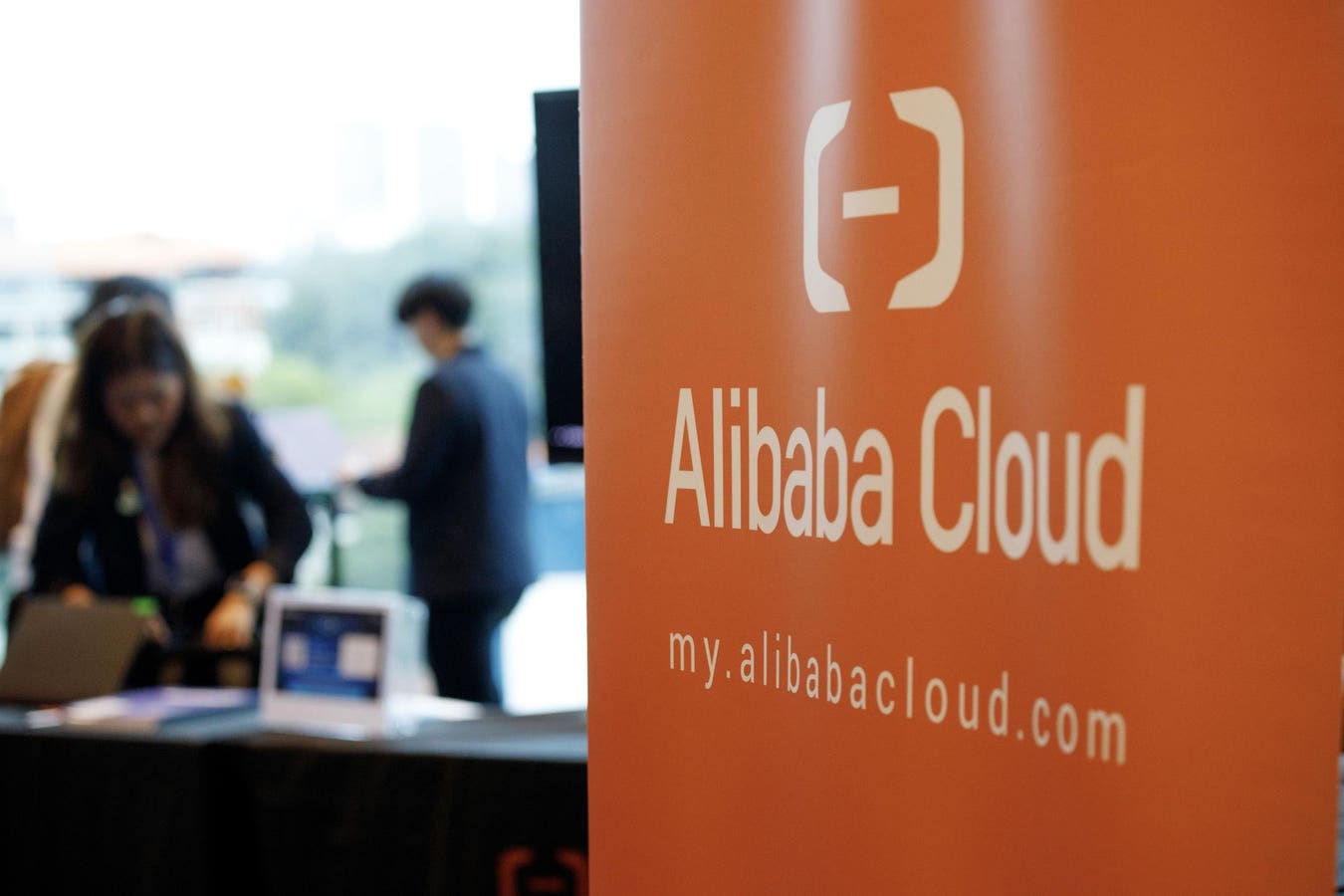The logo for Alibaba Group Holding Ltd.’s cloud unit displayed on a banner during the Alibaba Cloud AI Tech Day event in Kuala Lumpur, Malaysia, on Thursday, Feb. 27, 2025.
Samsul Said/Bloomberg
Shares of Alibaba surged 18.5% in Hong Kong on Monday as investors were encouraged by Chinese web giant’s progress in AI and its core e-commerce business despite a sizzling price war in the food-delivery sector that is hurting its profitability.
The Hangzhou-based behemoth now sports a market capitalization of HK$2.7 trillion ($346.5 billion) in the Asian financial hub. Its dual-listed shares rallied 13.5% in New York on Friday, after the company reported a strong set of results for the three months that ended in June. Cofounder Jack Ma, who stepped down from the helm in 2019 but still derives his net worth partly from a company stake, is now the country’s eighth richest man with a fortune of $28.3 billion, according to the Forbes Real-Time Billionaires list.
Investors were wowed by Alibaba’s growth in AI. The company’s cloud computing arm, the Cloud Intelligence Group, reported a better-than-expected 26% rise in revenues to 33.4 billion yuan ($4.7 billion), while sales of AI-related products maintained triple-digit year-on-year growth in the quarter.
Cloud revenue growth could accelerate over the next two years, amid strong demand for the company’s products that help to run AI-related services, Chelsey Tam, a Hong Kong-based analyst at research firm Morningstar, wrote in a September 1 research note. Wang Xiaoyan, a Shanghai-based analyst at research firm 86Research, says by WeChat that Alibaba’s investment in this area, which is more aggressive than peers, is helping to cement its lead.
To investors, such progress offers ample reasons to overlook short-term pains like the company’s dip in profitability, says Wang. Alibaba’s income from operations decreased 3% year-on-year to 35 billion yuan, as the firm handed out consumer subsidies and meal coupons to compete with JD.com and Meituan for a slice of the country’s gigantic food-delivery market. But thanks partly to changes in the value of its equity investments, net income jumped 76% to 42.4 billion yuan from a year ago. The company’s total revenues rose 2% year-on-year to 247.7 billion yuan.
Going forward, the investment in food delivery and so-called quick commerce, which promises to deliver online orders to consumer doorsteps within an hour, is expected to benefit sales more, analysts say.
This is because users attracted by the coupons are often directed to Alibaba’s flagship Taobao shopping app, which had a 25% year-on-year rise in monthly active users in the first three weeks of August, according to the company. Citing Quest Mobile data, 86Research’s Wang estimates that Taobao had 978 million monthly active users this May—the latest data available.
As more people shop via Alibaba, merchants are more willing to pay the company to promote their products. Alibaba’s customer management revenue, which refers broadly to sales generated from various online marketing services offered to merchants and shop owners, rose 10% in the June quarter to 89 billion yuan. During a Friday analyst call, management said they expected the growth trend will continue, as the company keeps enlarging its user base.








